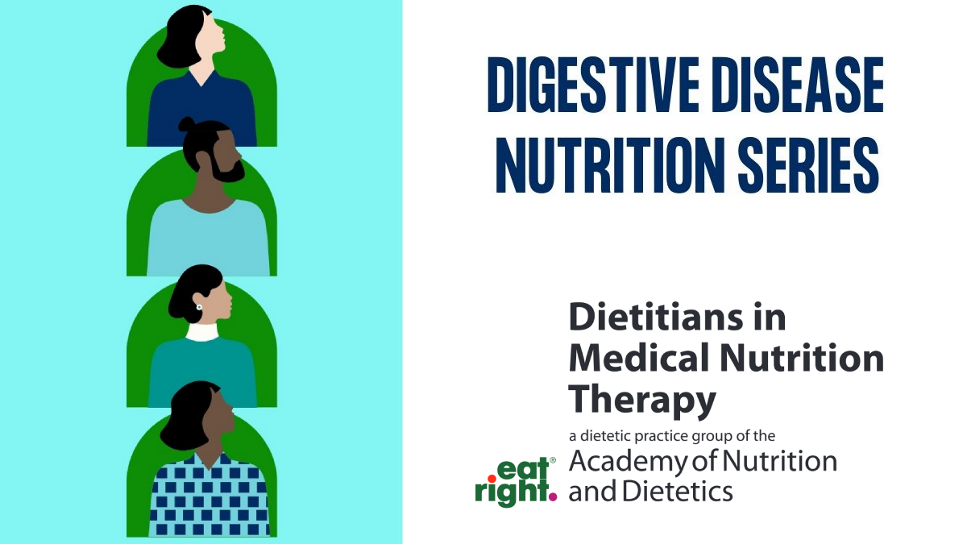In it's third year, the Digestive Disease Nutrition Series consists of eight presentations. The event covers topics on IBD, SBS, functional bowel, pancreas, and liver diseases. Each topic has presenters speak for 45 minutes, including a short Q&A. All speakers are members of the DIGID workgroups and are experts on the topics they present.
Sessions
Gluten-free diet claims to back or bust: What is the evidence?
Meghan Donnelly, MS, RD and Jessica Lebovits, RD, CDN
How to Advocate for Your Patients with Crohn’s Disease and Ulcerative Colitis: Inpatient, Outpatient, and Beyond!
Stacey Collins, MA, RDN/LD and Rebecca Goodrich, MS, RDN/LD
Diet is Not a Benign Intervention: ED-Informed Nutrition Care in GI Patients
Janelle Smith, MS, RDN, CEDS and Kate Evans, MS, RD
Prevalence and Characteristics of Gastroparesis in 2023
Carol Ireton-Jones, PhD, RDN, LD, CNSC, FAND, FASPEN
Micronutrient deficiencies: a clinician’s guide to finding the needle in a haystack
Gabriella Gardner, PSM, RD-AP, LD, CNSC
The Nutrition Management of Short Bowel Syndrome (SBS)
Maria Karimbakas, RD, CNSC
Nutrition Challenges Following Total Pancreatectomy Surgery
Elizabeth Miracle, MS, RD, CSO, CDN, CNSC and Jyoti Benjamin, MS, RD, CD, CSO, FAND
Nutrition Therapy in Non-Alcoholic Fatty Liver Disease (NAFLD)
Shelby Yaceczko and Kara Bates, MS, RDN, CNSC

